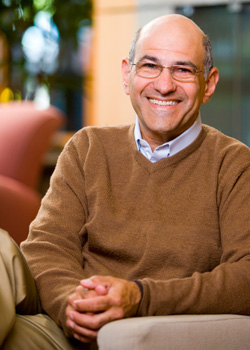Andrew Schorr recently posted this request on the ACOR CLL list, which I've repeated here for your input. I'll then summarise your responses for Andrew.
Greetings fellow CLL'ers:
As you know, I have been living in Barcelona for the past 14 months and will continue there for this next school year. But I am visiting Connecticut just now as our youngest will attend boarding school, my old school, in Avon, CT. After the trip to the US Esther and I will head to Cologne, Germany to shoot video interviews with world CLL experts at the IWCLL meeting, the International Workshop on CLL. What do you want to know from these folks? Send me very specific questions - not personal ones - but what you think the keys issues are. I'll do my best to get answers and they will show up in videos we will post on patientpower.info. By the way, that site is finally being modernized with a new design that will be much more focused on only a few cancers, with CLL as a main focus, of course.
Best Wishes, Andrew Schorr,
dx'ed 4/96, FCR in 2000, remaining in remission with with a second cancer in 2011, myelofibrosis, doing great with expensive little white pill morning and night.
Geri Macdonell has already responded with some good questions:
* Are there any studies being conducted on fatigue and CLL?
* Are there quality of life studies being conducted on per and post treatment of patients?
* What are your thoughts on the new drugs being approved by formularies for all CLL patients? Do you think further studies will need to be executed before all patients have access to the drugs? As the new drugs are being evaluated by formularies for reimbursement, are there any quality of life studies that could be used to justify the new drugs for all patients with CLL?
Neil
